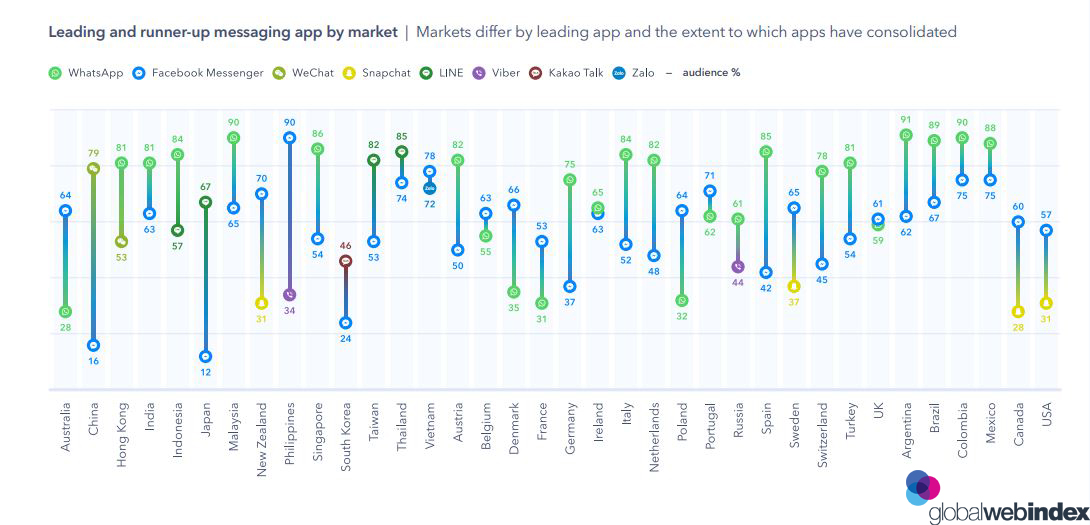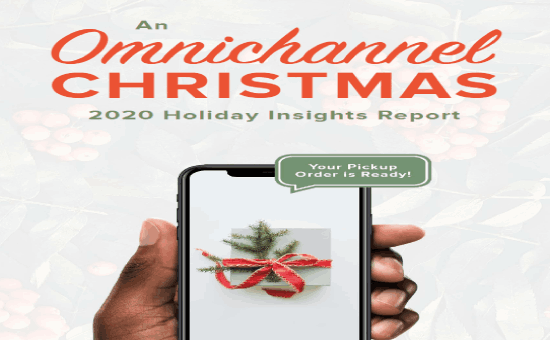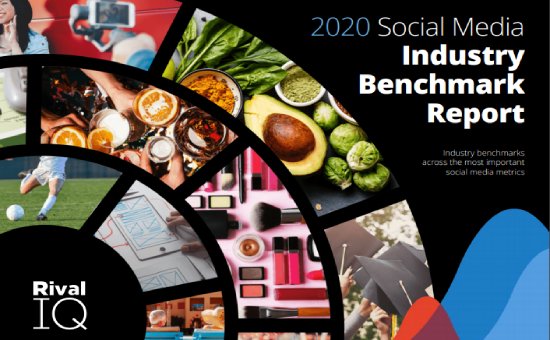Messaging Apps: Understanding the Potential of Messaging Apps for Marketers, 2019 | GlobalWebIndex
Social Media Insights | Global
Mobile messaging apps are defined as services that provide private one-to-one or one-to-many communication between registered users, where messages and calls are then transmitted via data connections on the mobile web. Most mobile messaging apps are known as over-the-top.
OTT messaging is provided by a third party as an alternative over the top of what is being offered by the mobile or cellular carrier and does not require cellular service. By using a mobile messaging app that uses internet data instead of SMS, users are able to avoid the per-text fees of cell phone carriers. This was particularly important for international communication as mobile messaging apps helped both parties avoid international texting and calling costs.
Other advantages that mobile messaging apps have over SMS, besides cost, include the speed at which messages are sent and received, the ability to set read notifications, location sharing, communication without cellular service and in some cases integration with desktop chatting which allows for seamless communication using different devices and platforms.
The Key Findings of The “Messaging Apps: Understanding the Potential of Messaging Apps For Marketers, 2019” Report:
- WeChat is primarily known for its dominant presence in the Chinese market at a rate of 79%.
- 58% of people who have used a messaging app to interact with brands use an ad-blocker and they are 23% more likely to do so than the average user.
- 20% of users who interact with brands on a messaging app want brands to provide useful applications and online services.
- Users who interact with brands on messaging apps block ads because ads sometimes contain viruses or bugs with a rate of 28%.
- Digital consumers who interact with brands by using an online chat application are more likely to be males under the age of 38, specifically in the 25 to 34 age group.
- 33% of WeChat users in China shared pictures or videos via moments.
- 40% of internet users in China used WeChat’s mobile wallet.
- 31% of WhatsApp millennial users made a video call/chat, compared to 20% of surveyed generation X.
- 87% of the global internet population uses some form of chat or messaging app on their mobile devices.
- 20% of surveyed millennials used the Facebook messenger to make a voice call.
- Only 5% of millennials Snapchat users swiped up on a user/brand’s story to see more.

A Figure Showing The Leading Messaging Application by Market, 2019.
The Content of The “Messaging Apps: Understanding the Potential of Messaging Apps For Marketers, 2019” Report:
- Introduction.
- Key Insights.
- The Online Messaging Landscape.
- The Messaging App Landscape.
- Usage & Functionality.
- Brand Engagement.
- Notes on Methodology.
- More from GlobalWebIndex.
Number of Pages:
- 24 Pages.
Pricing:
- Free.
Methodology:
Data were driven by GlobalWebIndex’s Q3 2018 wave of research across the following markets, with a global sample of 113,932 respondents, which yielded 13,927 LINE app users, 55,915 Facebook Messenger app users, 14,308 Skype app users, 24,125 Snapchat users, 11,119 Viber app users, 54,262 WhatsApp users outside of China as well as 26,286 WeChat users globally. Data regarding specific apps and named social platforms excludes respondents in China, bringing the total sample to 98,011.







